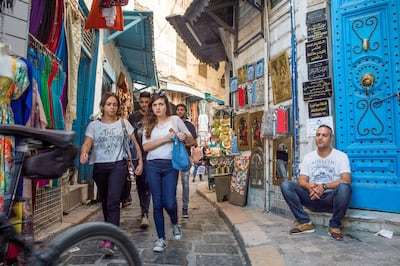The working week in the Arab world has traditionally revolved around Friday being the centre of the weekend as the sacred day of worship in Islam.
While that has meant some Muslim majority countries make Thursday and Friday their weekend, many have sought to align more closely with the non-Islamic world by designating a working week from Sunday to Thursday with weekends falling on Friday and Saturday.
Then there are some in the region that use the same working timetable as the West and non-Arab world in a bid to improve economic competitiveness and to be in line with global markets.
The UAE has become the latest country to shift its weekend to Saturday and Sunday starting from January.
Here is the situation across the Middle East:
GCC
Working weeks across the Gulf Co-operation Council countries are still Sunday-Thursday.
In 2013, Saudi Arabia changed the start of its two-day weekend from Thursday-Friday to Friday-Saturday to help co-ordinate business and banking days with the rest of the world.
Oman, Bahrain, Kuwait and Qatar have also switched to a Friday-Saturday weekend.
Any country following the Sunday-Thursday model will have four working days overlapping with Western and multinational businesses.
Switching to the Saturday-Sunday weekend will add one more day.
Lebanon (Saturday and Sunday)
In 2017, Lebanon adopted a new official pattern of 35 weekly hours in government offices with Saturday and Sunday as a weekend.
But the multi-confessional country sought to appease as many people as possible with the move. Public sector work hours are Monday to Thursday 8am to 2pm, Friday 8am to 11am — allowing Muslims to attend noon prayers — and 8am-1pm on Saturday with Sunday off to allow Christians to pray.
Lebanon has among the highest number of public sector holidays in the world, taking into account the religious days of many of the 18 official sects within the country.
Tunisia (Saturday and Sunday)
In 2016, the authorities decided to consider Saturday as a working day in some public institutions but then Tunisia started following the Monday-Friday working week in 2021.
On Friday, many businesses take an extended lunch break for afternoon prayers.

Morocco (Saturday and Sunday)
The standard working week in Morocco is 48 hours, or eight hours a day, Monday-Friday.
Israel (Friday and Saturday)
The relevant laws in Israel designate Friday and Saturday as the official weekend as the Jewish Shabbat runs from dusk on Friday to dusk on Saturday.
Algeria (Friday and Saturday)
The country had a Thursday-Friday weekend since 1976 but changed the pattern to Friday-Saturday in 2009.
Egypt (Friday and Saturday)
Egypt's weekend starts on Friday and extends into Saturday. Some private companies, however, adopt a half-day on Thursdays.
Iraq (Friday and Saturday)
In Iraq, the weekend refers to Friday and Saturday.
Jordan (Friday and Saturday)
The working week in Jordan is Sunday-Thursday.
Libya (Friday and Saturday)
In 2006, the Libyan authorities decided to change the weekend to Friday-Saturday instead of having only Friday off.


